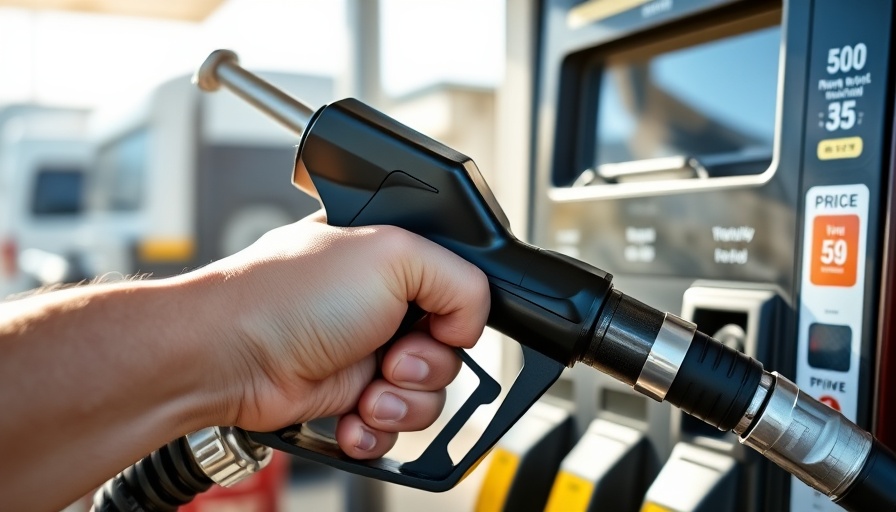
Why Gas Prices Are Rising: The July Surge
If you’re planning a summer road trip from Bakersfield or nearby, you might want to think about your budget—gas prices in California are expected to climb starting in July. On July 1, California's gas excise tax will increase to 61.2 cents per gallon, up from 59.6 cents. Diesel will also see a rise, increasing from 45.4 to 46.6 cents. This change is part of an annual adjustment tied to state regulations that can have a substantial impact on our wallets.
Understand the Bigger Picture of Fuel Costs
Interestingly, while summer months typically trigger a spike in gas prices, the situation this year is different due to the overall oil supply landscape. Experts from the American Automobile Association report that, despite typical summer trends, fuel prices are marginally lower compared to spikes in the previous year. The current average in California sits at $4.64 per gallon, which is a slight decrease from $4.81 last year.
Impact of California's Environmental Policies
Why the sudden rise in July despite lower demand? In 2024, the California Air Resources Board (CARB) amended its Low Carbon Fuel Standard program to encourage oil producers to transition to lower-carbon fuels. While this initiative supports environmental goals, it also adds costs to gas production. CARB estimates indicate that compliance with these new regulations could add as much as 47 cents to the price of gasoline. The result? Motorists may find the impact of these changes reflecting at the pump.
What Does This Mean for Your Summer Plans?
For those in Bakersfield, planning to hit the road: Our summer trips might look a little different if gas prices continue to rise due to these tax increases and regulatory changes. As reported, industry experts caution that accurate predictions on specific price hikes are challenging, but an increase of nearly 70 cents per gallon isn't out of the question.
Local Effects of Broader Economic Trends
While the predictions indicate a calamitous summer for our fuel budgets, it’s important to remember that these changes are tied not just to local conditions but also to global oil market dynamics. As oil inventories are expected to stabilize over the next few months, we could see some relief in prices shortly. However, for now, those planning road trips should prepare accordingly.
Making Smart Decisions for Your Travels
What can travelers do to mitigate rising fuel costs? Planning routes to minimize distance driven, and leveraging fuel reward programs and apps that help track gas prices may become increasingly important this summer. With fuel costs expected to spike, every cent saved can help make road trips more manageable.
A Call For Awareness and Action
As car expenses rise, it's crucial for us as consumers to stay informed about issues impacting fuel prices, including state and national policies. Engaging with your local representatives about how environmental goals may impact our everyday lives can create dialogue and push for transparent strategies that balance environmental stewardship with economic realities.
As you prepare for your summer road trip—or even just daily commutes—consider budgeting extra for fuel. Taking proactive measures now can help you enjoy your adventures without breaking the bank.
 Add Row
Add Row  Add
Add 



Write A Comment